In the lead-up to Russia’s invasion of Ukraine last month, a number of former and current Tunisian officials, including former Prime Minister Youssef Chahed, visited Washington to discuss Tunisia’s impasse with officials and analysts. After a slow-motion coup that began on July 25 last year, the last remaining democratic transition of the Arab Spring effectively ended. The country’s crisis has intensified in recent months, with would-be strongman Kais Saied dissolving the Supreme Judicial Council.
Before the war on Ukraine, it was difficult enough to persuade senior U.S. officials to focus attention on a country as small and (seemingly) strategically remote as Tunisia. It has, needless to say, become even harder. Surely, with Russia’s invasion, the Middle East is even less relevant to America and Europe’s fortunes than it was before. Perhaps the long-heralded pivot to Asia would finally come to pass. This might be a reasonable expectation, but it may also be a flawed one.
Obviously, as someone who works on the Middle East, I think the Middle East matters. But now it increasingly matters in a different way. During his first year in office, President Joe Biden repeatedly argued that the struggle between democracies and autocracies would define the coming era. It was hard to know just how seriously to take this. It was rhetoric, after all, with little in the way of significant policy changes or initiatives, save a largely ineffectual Summit for Democracy in December. In the Middle East, the idea that Biden would prioritize democracy and pressure authoritarian leaders was most notable for its absence.
As I wrote in a recent piece, Russia’s invasion has imputed new meaning and urgency to the Biden administration’s grandiose, but arguably hollow, rhetoric about the importance of regime type. The administration seems to realize this, with Biden underscoring the “battle between democracy and autocracy” in his remarks on Ukraine during his March 1 State of the Union address. What once may have been a rhetorical battle has now grown more tangible, a matter of life and death for those concerned. It is unlikely, after all, that a democratic Russia — one with popular accountability, open debate, and meaningful checks on executive authority — would have invaded a neighboring democracy.
Russia invaded Ukraine because of a man, one man to be precise. Authoritarian regimes, by their very nature, are unstable, as Putin has reminded us. If they were truly popular and stable, they wouldn’t need to resort to brutality. The very resort to repression at home is an expression of insecurity. Here, Russia’s domestic and foreign policy are inextricably linked. Putin has made clear his disdain for not just any government, but a democratically-elected one, which he hopes to decapitate. In two consecutive presidential elections, Ukrainians have voted decisively for leaders who have sought closer alignment with the European Union and NATO. Regardless of whether outside observers think this is wise for Ukraine, it appears that Ukrainians believe it is wise for Ukraine. In short, democracy matters — and if it matters here, presumably it matter elsewhere.
At a moment as decisive as this, the first true great power confrontation of recent decades, one might hope that American allies and partners could be counted on to support America’s objectives. But our friends in the Middle East have been notably circumspect. It is no accident that most of these partners are unabashedly authoritarian. Take the United Arab Emirates, which has seen a dramatic closing of political space in recent years. It depends on an American security umbrella and tens of billions of dollars of advanced U.S. weapons for its security. On February 27, the UAE was one of only three countries that abstained from a United Nations Security Council resolution condemning the invasion of Ukraine.
Earlier this month, the Wall Street Journal reported that the de facto leaders of the UAE as well as Saudi Arabia had both refused calls with President Biden, to discuss, among other things, easing the surge in oil prices. The apparent reasons were telling. The two Gulf countries wanted greater U.S. support for a years-long war in Yemen that has ushered in a humanitarian catastrophe. It appears that Saudi Arabia’s crown prince, Mohammed bin Salman, also desires legal immunity for his alleged involvement in the killing of Washington Post journalist Jamal Khashoggi. While it is understandable that Saudi Arabia and the UAE would be irritated by Biden’s unsympathetic posture, these are not the sort of “asks” that tend to preoccupy democratic nations.
Simply put, authoritarians see the world, and their relationships with the United States, in primarily transactional terms. They have one primary loyalty — to their own survival and security interests, however a tiny coterie of officials wish to define those at any particular moment. If one can sense little fellow feeling or genuine friendship between America and such regimes, it is because there is no basis for such a friendship. This is a foundational difference, not just an incidental one. Their entire systems of government go against America’s ideological orientation, even if it is an orientation that is often honored in the breach.
If the Russian invasion reminds us that the fundamental divide is not between allies and adversaries but between democracies and autocracies, then it is worth asking where Arab autocrats fit into America’s longer-term vision — and whether America’s regional security architecture should continue to be built around them.
Of course, “longer term” is the catch. Prioritizing the long term over immediate concerns is something every administration struggles with. Some things are urgent — like a war and its fallout — and other things may be important but not necessarily pressing. For Biden, those immediate concerns require easing energy costs, which might suggest making concessions to America’s Gulf partners and turning a blind eye to their authoritarian behavior. Yet, if the divide between democracy and autocracy really is the central struggle of our time, recalibrating America’s relationships in the Middle East will need to be part of Biden’s pro-democracy vision. How can such a vision succeed, in either rhetorical or practical terms, if an entire region of the world is exempted from it? Rethinking our relationships with Arab autocrats may not be urgent — and it may not be possible at this very moment considering the oil crunch — but one must begin sometime and somewhere. That time may be approaching sooner than expected.
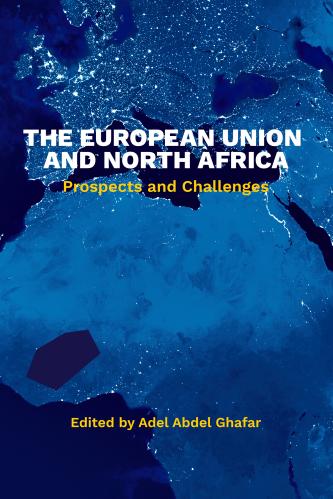
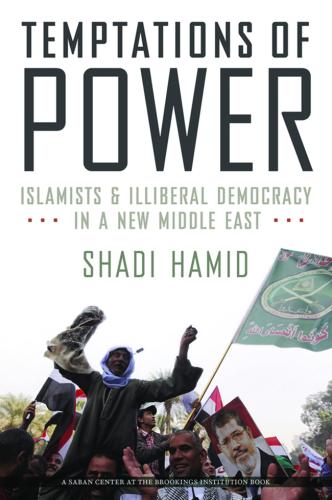
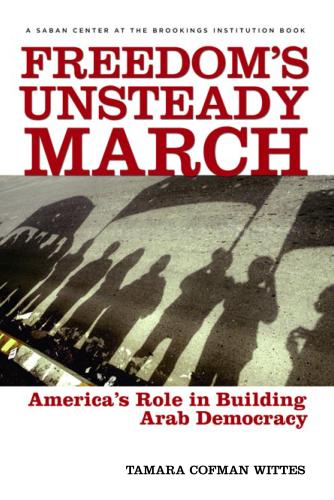

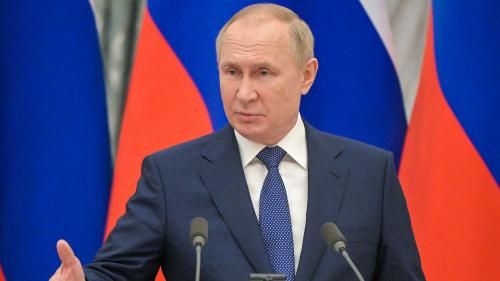
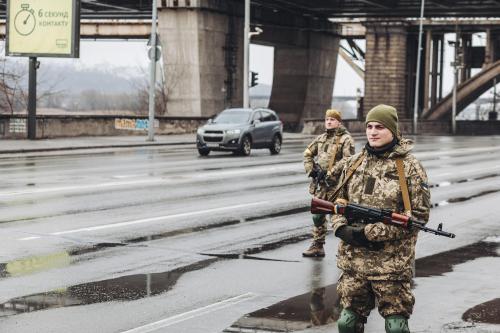



Commentary
What Russia’s invasion of Ukraine means for democracy promotion in the Middle East
March 23, 2022